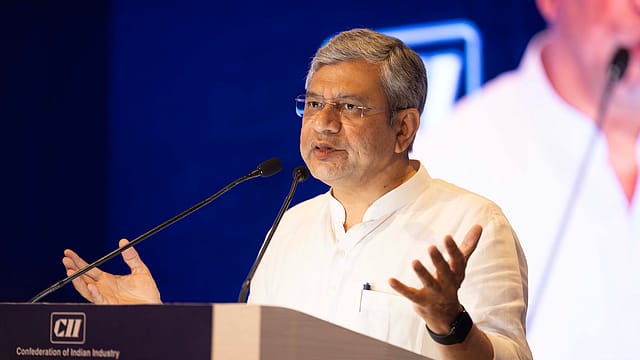'Interest of society paramount,' says Union Minister Ashwini Vaishnaw on the latest gaming bill
ADVERTISEMENT

Union electronics and telecommunications minister Ashwini Vaishnaw has called the recent introduction of the Promotion and Regulation of Online Gaming Bill, 2025 as a pertinent move, which has been three years in the making and which will protect the interests of the society.
The bill introduced in the Lok Sabha earlier this week has stirred concerns among leading gaming players such as Nazara Tech and Delta Corp. In recent years, these companies have been fighting legal battles in various High Courts and the Supreme Court to differentiate between games of skill and games of chance. This distinction was crucial to avoid being labelled as 'gambling' or 'betting' when real money is involved. However, the new bill eliminates this distinction and aims to ban real money gaming entirely.
The bill categorises online games into three types. The first being 'e-sports', which includes multiplayer events between individuals or teams with defined game rules. The outcome of these games depends largely on player skills such as strategic thinking and physical dexterity. The second category comprises ‘online money games’, which are either skill-based, or chance-based, or both and are played by paying money or other stakes such as purchase of tokens or coins or other forms. The third is the ‘online social games’, where neither money nor any other payment in required to participate for games that are meant for entertainment, recreation or skill-development purposes but can charge a subscription fee or one-time access fee but not as a wager and doesn't fall under the category of either an online money game or e-sports. The new bill prohibits games to fall under the second category.
“Our purpose of this bill and this exercise has been going on for almost 3 plus years where we have deeply engaged with the industry to see how the harmful impact can be prevented and can be contained, can be reduced and our objective has been to promote and encourage the good parts of it, making India as a game making hub we are creating,” Vaishnaw added.
Vaishnaw added that the government is not against gaming as an economic avenue, and only intends to eliminate the negative externalities it has caused in recent days. He spoke about how the Indian Institute of Creative Technologies (IICT), which was announced at the inaugural WAVES summit in Mumbai in May, is building on the ‘good aspects’ of gaming.
“We have set up the IICT, which is Indian Institute of Creative Technologies, and gaming is one of the verticals in waves. So, our focus is on making sure that the better parts, the good parts which are not harming the society, get promoted and encouraged, whereas the harmful impact on the society can be contained and reduced,” he added.